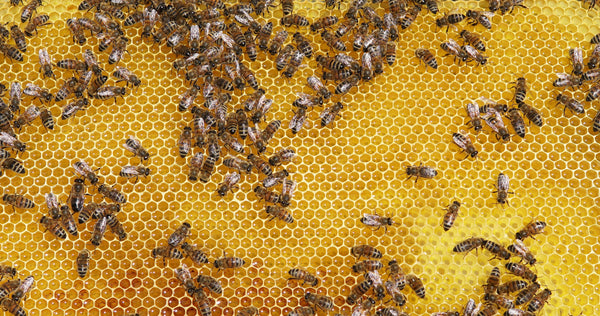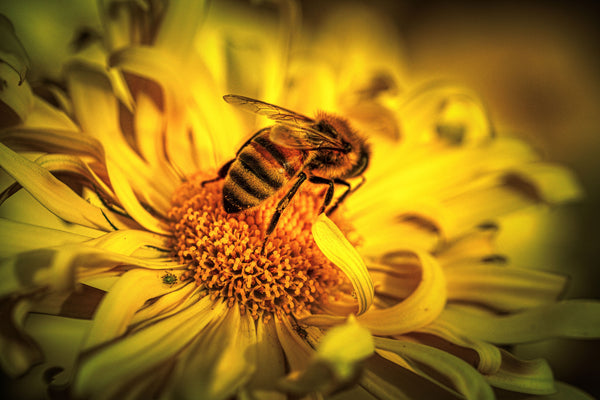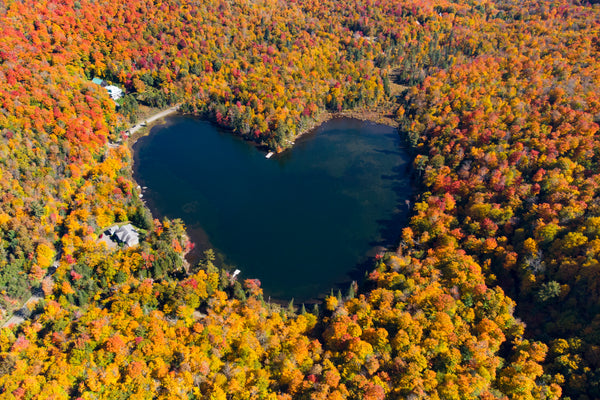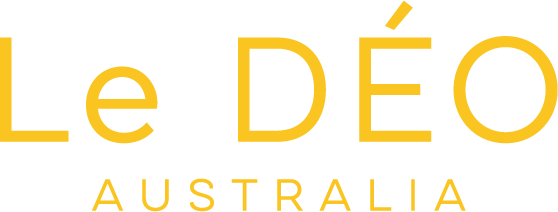THE STICKY BEESWAX DEBATE

A common reoccurring question arises in Vegan circles when the B-word comes up – is Beeswax, actually, Vegan? It’s a black and white answer for some and lots of grey for others. At Le DÉO we want to be transparent on our position and why we’ve taken it; so, we’ve written a blog post explaining why we use Beeswax in some of our deodorant variants.
How and Why Do Bees make Beeswax?
When young Honey Bees are working to create a home for the hive as well as to store honey, they produce a resin which comes out of specialised glands beneath their bellies and this becomes the wax once exposed to air.
What is Beeswax used for?
Beeswax is a very widely used ingredient in cosmetic products because of its amazing qualities, keeping surface skin well-hydrated while also creating a protective layer between your pores and the air. Beeswax is especially great because of its antibacterial and anti-inflammatory properties.
Why the debate?
The Vegan Society defines Veganism as
“a philosophy and way of living which seeks to exclude—as far as is possible and practicable—all forms of exploitation of, and cruelty to, animals for food, clothing or any other purpose; and by extension, promotes the development and use of animal-free alternatives for the benefit of animals, humans and the environment. In dietary terms it denotes the practice of dispensing with all products derived wholly or partly from animals."
As is the nature of philosophies, there are a variety of opinions on how best to determine which products meet such a definition and which don’t.
Generally, vegans do not consume products that contain animal matter or produce as they view this as an exploitation and subjugation of a living creature. Indeed, many past and present beekeepers have engaged in practices such as wing-clipping, poor hive management and extraction of honey and wax leading to the unnecessary deaths of many bees.
A question arises at this point whether Beeswax can be extracted without harm or exploitation of the bees. In Australia, the ACO has implemented many regulations and prohibitions in order for Beekeepers to receive its certification. These prohibitions and regulations include but are not limited to the previously mentioned wing-clipping, proper hive management, harvesting schedules and culling of the male brood. This is to ensure the health of the hive and the produce.

According to the Food and Agriculture Organization of the United Nations, Bees account for 35% of global agricultural land, supporting the production of 87 of the leading food crops in the world. It goes without saying that without the work of Bees and their critical connection to Nature, there would be mass food shortages and a global catastrophe if the Bee population were to keep dwindling as it has been in many parts of the world.
This is where another important ethical dilemma lies: whether the use of Bee produce is avoidable or even possible when so much of our current diet, Vegan or otherwise, is directly produced by the efforts of these beautiful living creatures.
According to GreenPeace, Honey Bees, wild and domestic, account for 80% of all pollination worldwide. Foods such as apples, avocados, cherries, cabbages, almonds - and many more others - are only available because of the intrinsic connection between flora and fauna. Enrichment of the soil via animal fertiliser (manure), pollination of crops by bees and many other causal links to our food cannot be totally divorced, such is the nature of Nature.
Our Position
In deciding which designation to give to Beeswax, it has led us, at Le DÉO, forward into investigating the issue in-depth with help from family, friends and our Tribe members both vegan and non-vegan. As outlined above the reality is philosophical: some vegans will use beeswax and some do not.
In this exceptional case, we have decided against the cut and dried safe approach and we’ve instead outlined the ingredients on its own dedicated page and made it available for all to view when making such a decision. We leave it up to the individual to decide for themselves which path and decision to take.
This is not to upset or promote either side but because the ethos of our company has always been Nature-based above all. According to a study published by the U.S. National Agricultural Statistics there has been a 60% decline in the population of Honey Bees in the last 70 years. This has been mostly due to pesticides and a loss of habitation due to human expansion in untouched natural areas.
As such, we’ve sourced our organic beeswax locally from ethical beekeepers that are helping fight the tide by keeping bees with respect and love as well as promoting growth in the bee population. For us, there is more at stake than a disagreement in definition.
However, just as Mother Nature links us all; Le DÉO strives to bring people together from all walks of life in this bigger mission. That is, to change lives by providing alternatives that will exclude harm to humans and the greater collective of Conscious Beings to the extent that is possible, practicable and desirable. With that in mind we have created multiple variants of our beloved DÉO, which include and exclude beeswax, so no one is left out - enabling us all to steer forward in this cause.
TL;DR: Our DÉO is for everybody!



